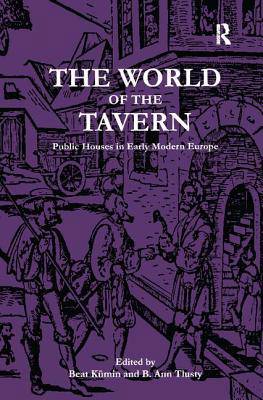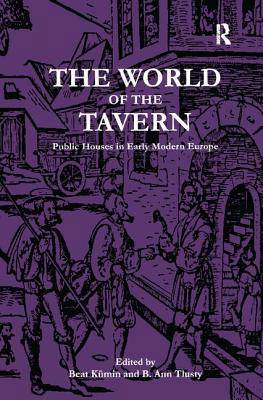
- Afhalen na 1 uur in een winkel met voorraad
- Gratis thuislevering in België vanaf € 30
- Ruim aanbod met 7 miljoen producten
- Afhalen na 1 uur in een winkel met voorraad
- Gratis thuislevering in België vanaf € 30
- Ruim aanbod met 7 miljoen producten
Zoeken
The World of the Tavern
Public Houses in Early Modern Europe
Beat Kümin, B Ann Tlusty
Hardcover | Engels
€ 168,95
+ 337 punten
Omschrijving
The subject of drink received a great deal of attention from early modern Europeans. Preachers, physicians, authorities, artists and travellers all addressed it from a range of different perspectives. At the same time, inns, taverns and alehouses served as multifunctional centres in towns and villages throughout Europe. This combination resulted in a wealth of sources, both institutional and cultural, which are only now beginning to be explored. This anthology features new research on public houses in England, Russia and the German lands. In a series of general, thematic and regional studies, contributors engage with broader debates in early modern history, shedding light on such key issues as consumption, travel and communication, state building, confessional identity, fiscal practice, gender and household relations, and the use of public spaces. The result is a volume that should appeal to anybody with an interest in early modern cultural history.
Specificaties
Betrokkenen
- Auteur(s):
- Uitgeverij:
Inhoud
- Aantal bladzijden:
- 264
- Taal:
- Engels
Eigenschappen
- Productcode (EAN):
- 9780754603412
- Verschijningsdatum:
- 12/09/2002
- Uitvoering:
- Hardcover
- Formaat:
- Genaaid
- Afmetingen:
- 156 mm x 233 mm
- Gewicht:
- 543 g

Alleen bij Standaard Boekhandel
+ 337 punten op je klantenkaart van Standaard Boekhandel
Beoordelingen
We publiceren alleen reviews die voldoen aan de voorwaarden voor reviews. Bekijk onze voorwaarden voor reviews.











